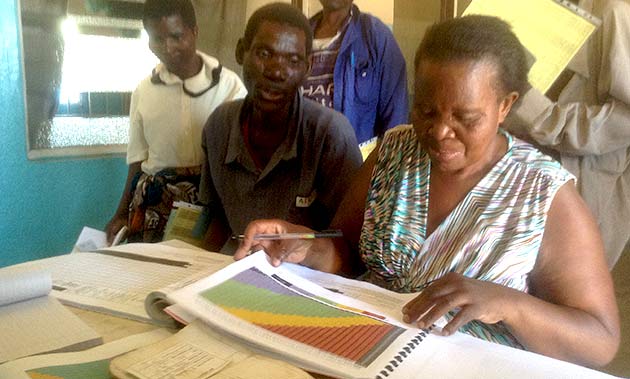 A nurse at Phalula Health Centre assesses a client’s nutritional status.
A nurse at Phalula Health Centre assesses a client’s nutritional status.
Chronic weight loss occurs in around 20 percent of people living with HIV. Adhering to a balanced, nutritional diet can help them maintain a healthy weight and support adherence to medication. In turn, to help maintain good health, their nutritional status must be routinely monitored. To assist with nutrition monitoring in Malawi, FANTA worked with the Ministry of Health to introduce nutrition care, support, and treatment services (NCST) within selected facilities that provided antiretroviral therapy.
To build the capacity of health care providers in NCST, FANTA conducted classroom training where service providers learned about the interaction between nutrition and infection, gained skills for assessing and classifying nutritional status, learned about national standards, and practiced using tools to deliver NCST. Following the training, health care providers received on-the-job mentoring and coaching to refresh their knowledge and master their newly acquired skills.
Several months after the training and mentoring were conducted, service providers’ indicated that their knowledge and skills had grown to better help their patients.
“It was like a wake-up call to us,” Mr. Edward Katutana, a Medical Assistant In-Charge at Mbera health center said. “We now know what we are supposed to do and when. Previously, we only had one health surveillance assistant who provided nutrition services to malnourished children, now we have 10 service providers who have capacity. The team is confident in providing nutrition services to adult and adolescent clients who visit the facility.”
The service providers have also identified and trained volunteers such as ward attendants, guards, drivers, and expert clients to assist with taking weight, height, and mid-upper arm circumference measurements. As a result of this change, the number of clients attending HIV and tuberculosis care who also received nutrition services increased from 24 percent before the training to 96 percent after the training. Strengthening the capacity of these health care providers to provide nutrition services will improve the care and treatment of people living with HIV.


